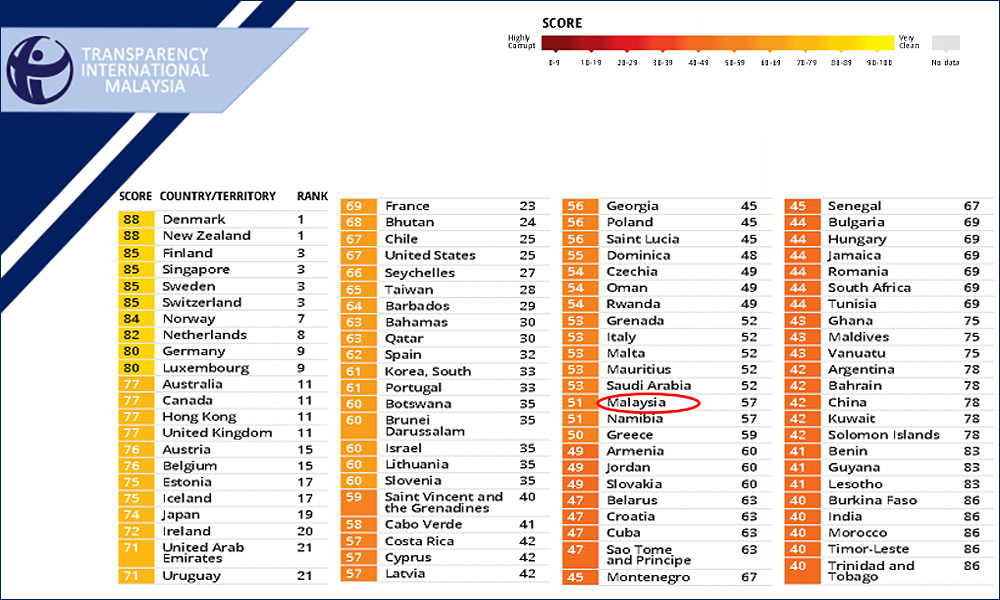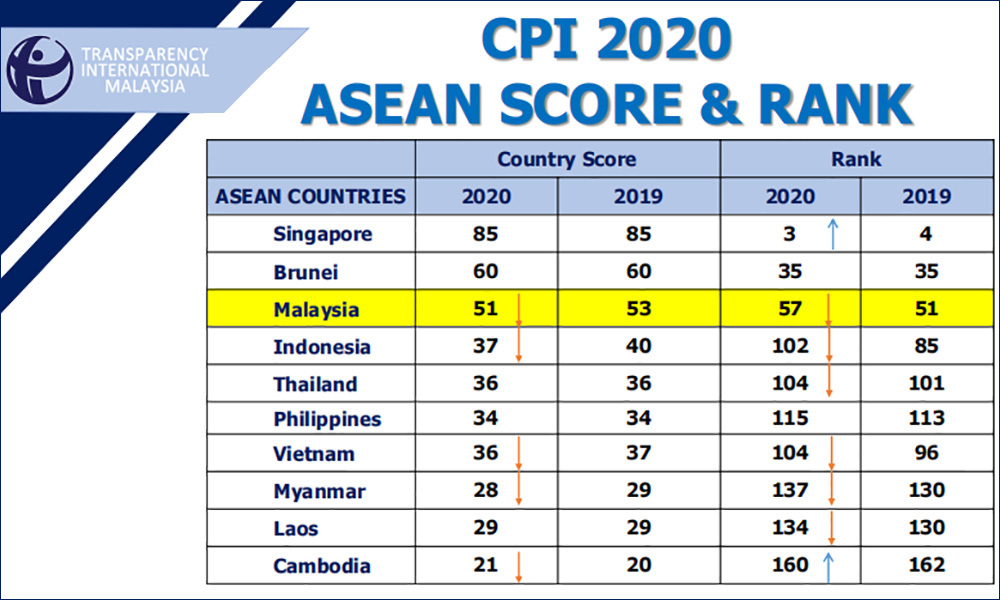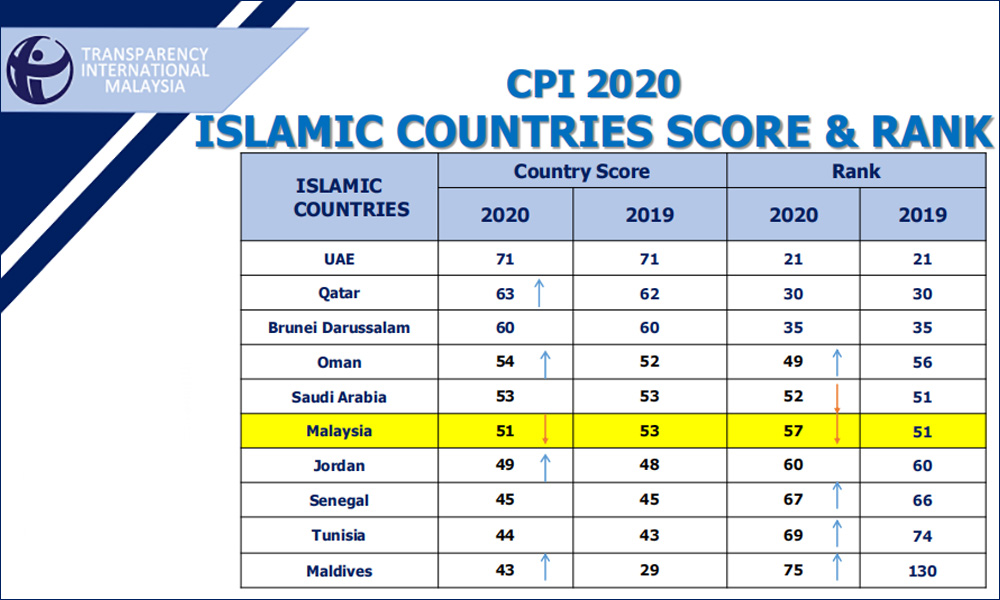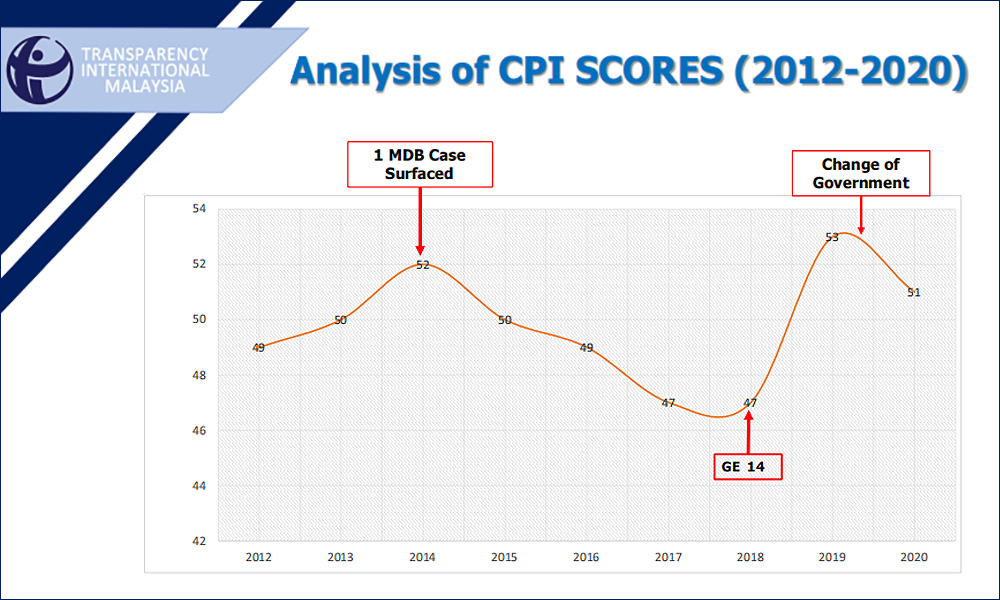As world governments continue to wage war against the Covid-19 pandemic, global anti-corruption coalition Transparency-International said findings of its Corruption Perception Index (CPI) have revealed a "corruption crisis" amid the public health crisis.
The results of the annual survey were launched today amid a backdrop of fiscal measures taken by governments to address Covid-19 related expenditures, including spending that may not have gone through adequate check and balance procedures.

Muhammad said Malaysia last year scored 51 out of 100 points and ranked 57 among 180 countries; in comparison to 53 points scored in 2019 for a ranking of 51.
Muhammad noted that Malaysia's performance last year was also in contrast to two years of improvements recorded since 2018, following an institutional reform agenda under the previous Pakatan Harapan administration.

"The score we are seeing for Malaysia (last year) may be statistically insignificant but the (downward) trajectory we are seeing is worrying," he said.
"...the government must be cognizant that our rank falling six steps means that compared to other countries, we are not improving as well in our efforts to fight corruption," he said.
Among 10 Asean countries, Malaysia ranked third below Singapore and Brunei. Singapore is also credited as the best-performing country from South East Asia with a score of 85 and ranked third overall.
Acknowledging the importance of ties with Muslim-majority countries, Muhammad said Malaysia's score placed the country below UAE, Qatar and Saudi Arabia, among others.
In terms of reasons for Malaysia's performance, he said among the contributing factors include stalled institutional reforms, for example, unfulfilled promises to table the Political Funding Bill and the Independent Police Complaints and Misconduct Commission (IPCMC) Bill.

At the judicial level, Muhammad attributed the negative perception to several acquittals or discharge not amounting to an acquittal (DNAA) granted in high-profile corruption cases last year.
"Those (politicians) who are already convicted and pending appeal, they should vacate their positions and not roam freely as what is happening today," he added.
Further, he said limited access to information on matters of public interest had also led to negative perception, with the most recent example being a government's refusal to declare the amount of compensation owed to Singapore over the cancellation of the High Speed Rail project.
Muhammad noted that Minister in the Prime Minister Department Mustapa Mohamed had cited a confidentiality clause that prevented Malaysia from revealing the amount, despite Singapore citing a figure of S$270 million (RM891 million) for costs incurred.

"We understand this, but the compensation is all about taxpayers money. Taxpayers deserve to know," stressed Muhammad, adding that greater transparency through narrowing scope of the Official Secrets Act 1972 would translate to improved public perception.
Overall, he said Malaysia should accelerate plans of institutional reforms already put in place, as well as continue with the National Anti-Corruption Plan 2019-2023.
Muhammad also suggested that the chief secretary to the government be empowered to implement the NACP goals, aside from public disclosure of progress on its 115 initiatives through an online dashboard.
"Only with such momentum and commitment from the leadership, the trajectory of the corruption perception index can be reversed," he said.
The CPI scores and ranks are based on 13 surveys and expert assessments which measure the perceived level of corruption in the country’s public sector on a scale from zero (perceived to be highly corrupted) to 100 (perceived to be very clean). - Mkini




No comments:
Post a Comment
Note: Only a member of this blog may post a comment.